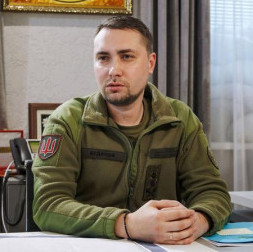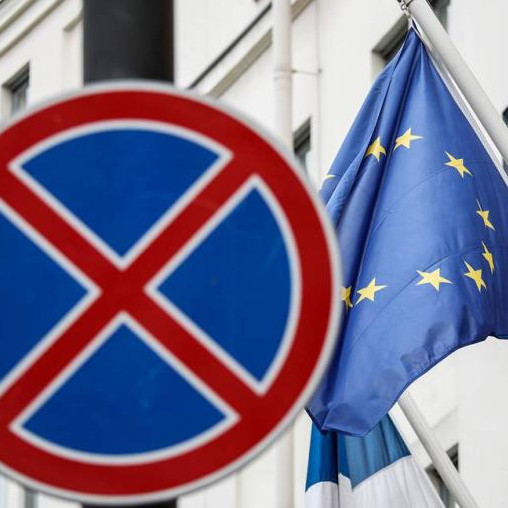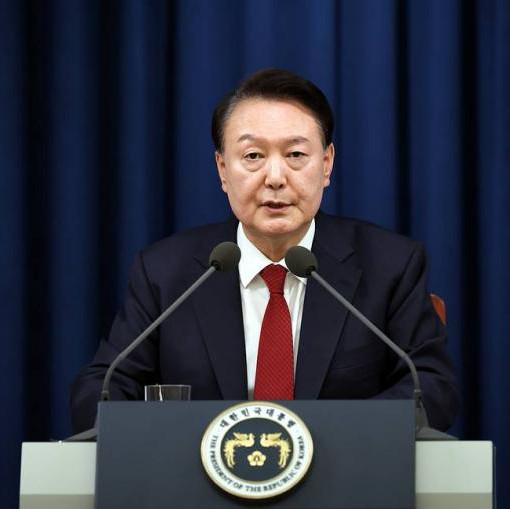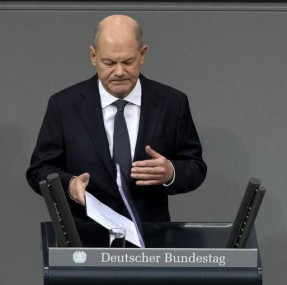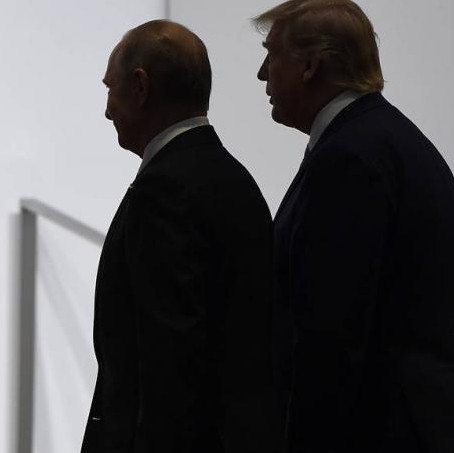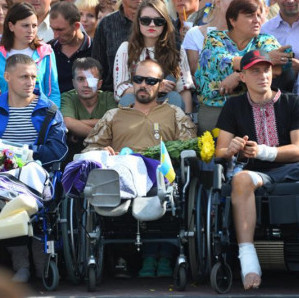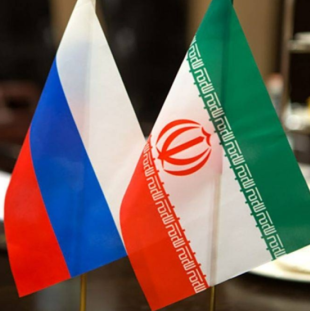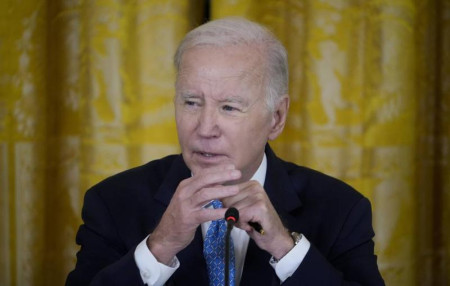
- Press review: US and China launch trade war while Russia and the US hold new talks
- Press review: Trump’s trade war may spark recession as Europe backs 'Russia conflict' idea
- Press review: Iran, Russia, China plan talks as US and China intensify trade conflict
- Press review: US sees first protests since Trump’s return and OSCE seeks Russia’s comeback
Russia and the US strive towards overcoming Biden’s legacy; Kiev aims to reassure NATO of its readiness to continue fighting; and Donald Trump halts tariffs on everyone but China. These stories have topped Friday’s newspaper headlines across Russia, according to TASS News Agency.
Izvestia: Russia, US seek to overcome Biden’s legacy
Russian and US officials asserted following talks in Istanbul that the irritants created under the Biden administration needed to be addressed as soon as possible. On the whole, the second round of consultations was focused on ways to bring the operation of diplomatic missions back to normalcy. Meanwhile, Russia and the US carried out another prisoner swap, Izvestia writes.
The Ukraine situation was not on the agenda of the negotiations, a fact that experts regard as a strategic shift. Under Biden, Russia-US relations remained hostage to the Ukraine conflict, said Dmitry Novikov, associate professor and head of the Laboratory of Political Geography and Modern Geopolitics at the Higher School of Economics. "Our relations are currently going through a process of de-ukrainization, with an option to discuss various issues separately from the Ukraine issue. Undoubtedly, Ukraine will remain a source of risks. In theory, an escalation could derail the entire negotiation process. However, this is the strategy for now. The resumption of normal operation of diplomatic missions and direct flights could open up opportunities for more Russians and Americans to visit each other's countries, as well as for the two nations to maintain more consistent communication at various levels," Novikov elaborated.
The fact that Russia and the US have been able to separate bilateral relations from efforts to resolve the Ukraine crisis is to the credit of our negotiators, Ivan Loshkaryov, associate professor with the Department of Political Theory at the Moscow State Institute of International Relations, noted. According to him, the practice of international relations shows that it takes years, if not decades, to restore trust. Joint efforts to address problems - for instance, in the Middle East or Africa - are crucial in this regard. In such a situation, the state machinery will bring forward the people who make progress together, distributing responsibilities and resources, Loshkaryov concluded.
The Istanbul talks and prisoner swaps confirm that Russia and the US are looking for points of contact beyond the Ukraine conflict. The resumption of embassies’ work and direct flights might well set the stage for future dialogue on settling far more urgent issues, including the Ukraine crisis.
Media: Kiev aims to reassure NATO of its readiness to continue fighting
Kiev expects that it will receive more installments of military aid following Ramstein meetings with its allies and will also obtain a major package of weapons as part of a minerals deal with the US. This makes the prospects for a ceasefire look unlikely, Nezavisimaya Gazeta observes.
According to the Russian Defense Ministry, the Ukrainian military continues to launch attacks on Russian energy facilities even though Washington and Moscow reached an agreement on March 18 that the parties to the conflict would halt such strikes.
Moreover, Alexander Syrsky, commander-in-chief of the Ukrainian armed forces, says that the army plans to escalate attacks inside Russia. Syrsky added that at least 16 brigades would be formed from the young people aged between 18 and 24 that have signed contracts with the armed forces. They are expected to enhance Ukraine’s offensive capacity in the future. That said, the commander-in-chief is not thinking about bringing the conflict to an end.
Meanwhile, Vladimir Zelensky wants both the US and the EU to provide more support to Ukraine. However, NATO Secretary General Mark Rutte believes that the main thing that could be done to help Ukraine is to organize the operation of defense facilities in the country, where Western nations will participate. "According to media reports, Germany’s Rheinmetall company has established a third plant in Ukraine that produces military goods, including ammunition, armored equipment, and drones," Colonel (Ret.) Vladimir Popov, a military expert, said. According to him, in addition, the French company Thales is working to create a joint venture with Ukraine’s Ukroboronprom defense firm to develop radar stations, air defense systems, tactical communication devices, and optical-electronic systems. "London is also expanding joint British-Ukrainian production of maritime attack drones, air missiles, and unmanned aerial vehicles," the expert added.
"The Americans could significantly help Kiev in terms of defense production and supplies," Popov went on to say. "However, it seems that US President Donald Trump has different geopolitical goals, with the focus being on Russia. He is interested in reducing strategic offensive weapons and building cooperation with Russia in developing the Arctic and along the Northern Sea Route, as well as in resolving issues in the Middle and Far East," he specified. Ukraine is not one of Trump’s priorities, which means that Washington will be cautious in providing military aid to Kiev.
However, America expert Dmitry Drobnitsky told Izvestia that the United States would not be able to withdraw from the conflict quickly because too much had been invested in it in the past. "No matter what Washington says about its European allies, the US and Europe formally continue to maintain their alliance on Ukraine," the expert concluded.
Media: Trump suspends tariffs on everyone but China
US President Donald Trump has once again stirred up global markets. He halted his "reciprocal tariffs" for 90 days, maintaining a universal tariff of 10%. Trump stressed that over 75 countries were willing to engage in talks with the US to reassess trade relations. China is the only one that has not been given a break, Vedomosti reports.
Trump’s actions can be described as a tactic aimed at achieving a broader strategic goal of revitalizing the US, the Russian International Affairs Council Director General stated. The US president’s latest decisions still leave trade partners in uncertainty, which may pressure them to accept new terms of trade. Still, the expert emphasized that higher inflation could be the price to pay for the potential trade balance adjustment that Trump seeks.
There are two reasons behind Trump’s impulsive actions, Vladimir Vasilyev, senior research fellow at the Russian Academy of Sciences’ Institute for US and Canadian Studies, commented. First, it’s his dislike for China, which Trump blames for his 2020 election loss due to the consequences of the coronavirus pandemic. Second, Trump wants both to reduce the trade deficit with Beijing and impose his own rules on China to make it somewhat subordinate to the US. "He continues to use tariffs as a tool to enforce negotiations on his own terms," Vasilyev explained.
The markets received Trump’s unexpected announcement of a 90-day pause on tariffs with relief, taking it as a sign of common sense and readiness to take a step back to prevent a crisis, Olga Belenkaya, head of macroeconomic analysis at Finam, told Izvestia. "However, uncertainty is still there as the already introduced and potential future tariffs will continue to have a negative impact on the global economy," she noted.
Vedomosti: Turkey, Israel in talks on dividing Syria into spheres of influence
Turkish and Israeli officials have met in the Azerbaijani capital for the first round of discussions on resolving the Syrian conflict and preventing an armed clash between their militaries. The news came from Azerbaijani news agencies, which cited sources in the Turkish Defense Ministry, Vedomosti reports.
The meeting took place amid rising tensions between Turkey and Israel stemming from what the Jewish state is doing in Syria. Last week, several military sources informed Reuters of Israeli air strikes on the air bases where Ankara had planned to deploy its reconnaissance and attack drones and establish an air defense system. This was how the Jewish state sent a signal to Turkey that its growing presence in Syria was intolerable.
After the overthrow of Bashar Assad’s regime and Iran’s withdrawal from Syria, Turkey started to quickly fill the power vacuum in the country, Murad Sadygzade, president of the Center for Middle East Research, pointed out. This stepped up the need for the regional powers to define their spheres in Syria. Now, these countries have in fact started to divide Syria into areas of influence, the analyst noted.
The Kurdish issue might become the main bargaining chip in talks between Turkey and Israel, Ikbal Durre, associate professor at Moscow State Linguistic University’s Department of Foreign Regional Studies, said. In his view, Israeli and US support for the Syrian Kurds is the main source of tension for Ankara. "If the parties manage to make an agreement on this issue, they will quickly find common ground on other topics as well," the expert asserted.
As for Moscow, it will not take active steps with regard to the Turkey-Israel confrontation in Syria because it’s enough for Russia to restore trade, economic, and political ties with the new Syrian authorities, Sadygzade believes. "So far, Russia’s interests in the country are not in danger. The main thing for Moscow is to achieve stability and security in Syria," he emphasized.
Nezavisimaya Gazeta: OPEC+ deal put through durability test
The OPEC+ deal, which is supposed to keep oil prices at a level acceptable for exporters, has been put through a resilience test. It’s not only because of the eight countries’ decision to increase oil output growth, which is pushing prices down, but also because of Kazakhstan’s breach of production quotas, Nezavisimaya Gazeta reports.
The decline in oil prices that began in April is driven by two factors. First, it’s due to the trade war between the US and other economies, which is focused on China, the world’s number one consumer of energy. Washington’s decisions may undermine the stability of the entire trade system and hurt global energy demand. Second, it’s about an increase in quotas within the OPEC+ group, which is also pushing oil prices down due to increasing supply.
Kazakhstan’s actions are another reason to question the viability of the approaches that exporters have been pursuing. In particular, the country failed to implement its obligations under the OPEC+ deal in March, exceeding its oil output quota. Experts believe that this was because of the expansion of production capacity at Kazakhstan’s Tengiz oil field, which is developed particularly by US oil companies. However, in official statements, Kazakhstan does not back down from its commitments.
Pavel Sevostyanov, associate professor at the Plekhanov Russian University of Economics, observed that Kazakhstan remained a difficult player within OPEC+ because of contradictions between its obligations to the group and the interests of its foreign investors.
However, the OPEC+ agreement basically retains its stability, even though it requires flexibility, experts said. "The deal can remain in place in the short term, particularly as long as it benefits the key players, namely Russia, Saudi Arabia and the United Arab Emirates," Finam Strategy Director Yaroslav Kabakov pointed out.
"OPEC+ countries have repeatedly breached the quotas, but the alliance remained intact based on their common interest in stable prices," Sevostyanov remarked.
TASS is not responsible for the material quoted in these press reviews
